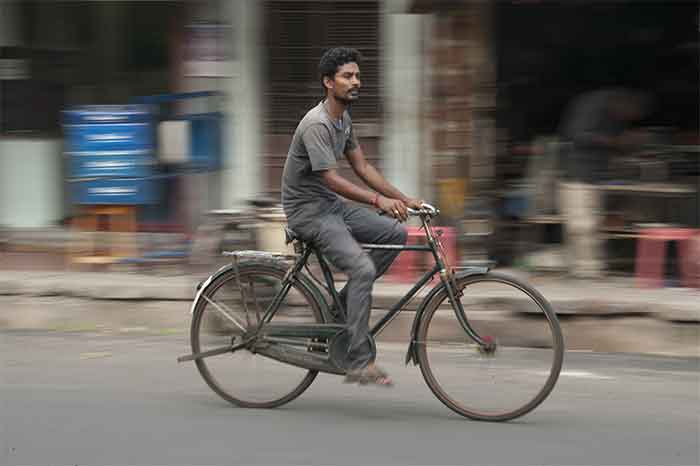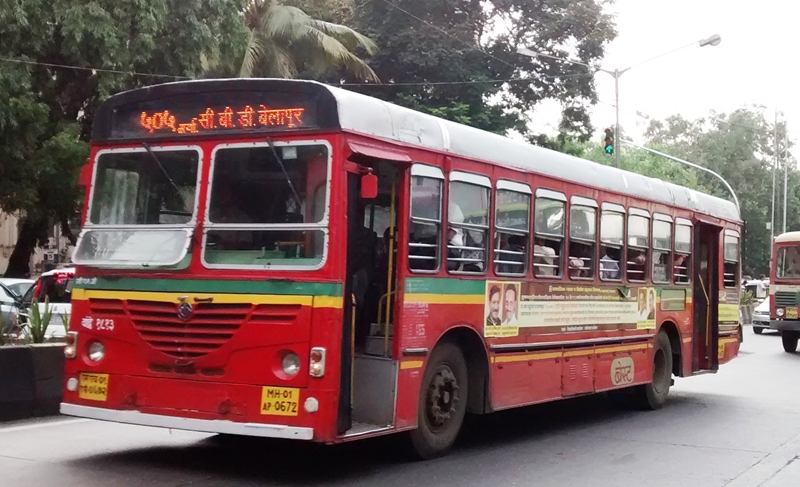
When I heard that the Atlas Cycle Company was closed, I really felt sad. It is one of our very good companies and it had an international reputation. I hope its crisis is temporary and it will reopen soon. I think it should lead to introspection about our country, our government’s policies and the attitude of the Indian middle classes about Indian goods.
This closure is a part of our neo liberal policy that successive governments have been following since 1991. We have been closing our very good factories, both private and public sector and importing finished goods. This attack on our sovereignty by imperialist powers did not just happen in 1991. There was a gradual build up right from the beginning of independence.
In the 50s we began with building up a big industrial infrastructure, technological institutes and science laboratories. We banned import of many finished goods including cycles. India stopped import of bicycle in 1950s and four great Indian companies came up: Sen Raleigh in Asansol, Hero and Atlas in Panjab (at that time Haryana was not a separate state) and Hercules/BSA in Madras. All of them produced world class bicycles and earned India a good name all over the world. But the purchasing power of Indian poor remained low and so the growth of Indian cycle industry was not as much as its potential was.
Meanwhile the push from multinationals and the craze for cars increased exponentially and the car lobby became powerful. They changed the landscape of the cities, built wider roads and flyovers and the cycle was pushed aside and became an invisible poor man’s vehicle. The government supported the car industry and did not care for the cycle industry. The first to fall was Sen Raleigh and now Atlas.
China and India
Both India and China got liberated around the same time. And at the start India was more industrialised than China. I will restrict to the bicycle only.
China started at the same time. But due to its egalitarian policies the incomes of its poor increased significantly and they bought the famous ‘Flying Pigeon’ roadster of China. In India the cost of bicycle is 49% of the monthly income of a poor person whereas in China it is only 8.3%! Therefore
today almost every household in China has a bicycle whereas in India only half the household have a bicycle. Naturally this is reflected in the production figures too. China produces 8.45 crores cycles per year whereas India produces only 1.55 crores. In the world two out of three cycles are manufactured in China and of the total cycle in the world – 100 crores – half or 50 crores are the Chinese Flying Pigeons. And finally Chinese imports of cycles is nearly zero whereas we are importing 17, 00,000 units per year.
But we can’t blame the government alone. The neo liberal policies also created a new rich Indian middle class which has the craze for imported goods. This is again not new. A part of the Indian middle class always was a bit ‘unpatriotic’ and had this craze for foreign. It is our colonial legacy. This craze for foreign, this admiration of the ‘white skinned’ people is a deplorable phenomenon all over the country. For example on our bicycle Face Book pages we read about Amsterdam and Copenhagen constantly but there rarely has been any mention of China, the greatest bicycling country of the world!
I am not completely against imports either. In some special cases of sports cycling it may even be necessary. The share of the high end of bicycles in the world is only 5%. In India it would amount to less that 1 percent of the cycle users. For the rest it is just an ‘unpatriotic’ craze! But while in 1991 the roadsters produced in India were 90% today its share has gone down to 70% only. The fancy cycle (and in my opinion mostly useless) occupy the 30%.
Standard versus Special
Standard refers to the old fashioned ‘roadster’ design. The design has not changed for more than 100 years. It has proved to be the most durable, affordable and easy to maintain cycle. It can be maintained and even assembled in a block level town in India. Indian roadsters are as good as any in the world and often better than them. There is absolutely no need to buy an imported roadster. In terms of use 99% of cycle users can depend on the roadster cycle including the cycle club members. Only the few pro or professionals who aspire to do endurance cycling, long trips, races, Tour the Nilgris etc. need high end bicycles. Even for long trips, if you stick to 50 km per day you can easily do it on a roadster.
Be Indian Buy Indian
Normally I am wary of patriotic slogans. But in the case of cycles I think it is justified. My appeal to all of you is:
1. Normally buy an Indian roadster cycle. That is the best machine on Indian roads.
2. Donate one Indian roadster to a needy worker – man or woman in your locality.
3. Make friends with your local cycle repairman and give him respect. That will ensure long life to your cycle and a comfortable ride.
Revive Atlas Cycle Company!
Start a new Cycle Company in Bengal!
Happy Riding!
T. Vijayendra (1943- ) was born in Mysore, grew in Indore and went to IIT Kharagpur to get a B. Tech. in Electronics (1966). After a year’s stint at the Saha Institute of Nuclear Physics, Kolkata, he got drawn into the whirlwind times of the late 60s. Since then, he has always been some kind of political-social activist. His brief for himself is the education of Left wing cadres and so he almost exclusively publishes in the Left wing journal Frontier, published from Kolkata. For the last nine years, he has been active in the field of ‘Peak Oil’ and is a founder member of Peak Oil India and Ecologise. Since 2015 he has been involved in Ecologise! Camps and in 2016 he initiated Ecologise Hyderabad. He divides his time between an organic farm at the foothills of Western Ghats, watching birds, writing fiction and Hyderabad. He has published a book dealing with resource depletions, three books of essays, two collections of short stories, a novella and an autobiography. Vijayendra has been a ‘dedicated’ cyclist all his life, meaning, he neither took a driving licence nor did he ever drive a fossil fuel based vehicle. Email: [email protected]
SIGN UP FOR COUNTERCURRENTS DAILY NEWSLETTER














































